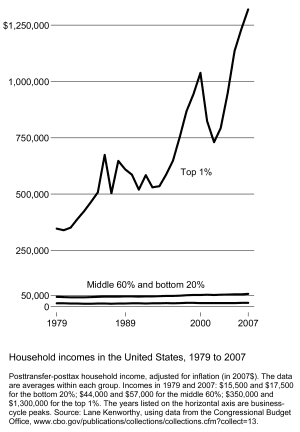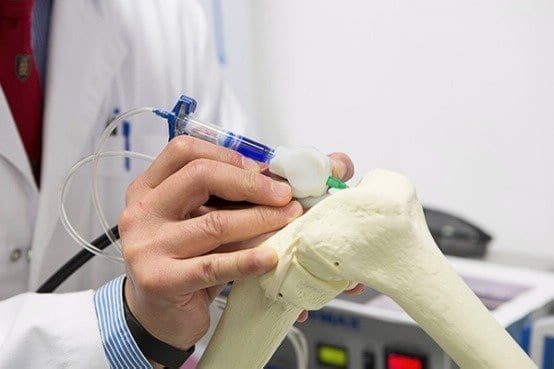
A big reason America is falling behind other countries in science and math is that we have effectively written off a huge chunk of our population as uninterested in those fields or incapable of succeeding in them.
Women make up nearly half the work force but have just 26 percent of science, technology, engineering or math jobs,according to the Census Bureau. Blacks make up 11 percent of the workforce but just 6 percent of such jobs and Hispanics make up nearly 15 percent of the work force but hold 7 percent of those positions. There is no question that women and minorities have made progress in science and math in the last several decades, but their gains have been slow and halting. And in the fast-growing field of computer science, women’s representation has actually declined in the last 20 years, while minorities have made relatively small gains.
These jobs come with above-average pay and offer workers a wide choice of professions. Opening them to women and minorities would help reduce corrosive income inequality between whites and other groups, and would narrow the gender gap in wages. Improving the representation of women and minorities would also enrich American scientific research and development, because they will add a different perspective to workplaces currently dominated by white and Asian men.
Moreover, the people who do well in these professions will be much more likely to lead the industry in the future and make decisions that affect thousands of workers and customers. Many technology companies, including Twitter until recently, have no women on their board of directors, and few blacks and Hispanics in senior management roles, in part because too few girls and minorities are becoming programmers and engineers.
What’s Holding Them Back
The biggest career disadvantage faced by many lower-income blacks and Hispanics is their limited access to a good education. Compared with upper-income Americans, a greater percentage are raised by parents who have not gone to college or graduated from high school, and more grow up with single parents who do not have the time or resources to enrich their children’s education. Moreover, a smaller percentage of minority children attend enriching prekindergarten programs, which studies have shown aids the development of cognitive and analytical skills that are needed to do well in science and math. A recent study showed that nearly half of Hispanic 4-year-olds are not enrolled in any preschool classes. While more than 60 percent of black 4-year-olds are enrolled, most of them are in programs of low or mediocre quality.
Schools that serve minority and lower-income neighborhoods tend to employ teachers with fewer years of experience and less specialized training in math and science than schools in white and upper-income neighborhoods, according to a 2012 National Science Foundation report. By contrast, developed nations like Germany, South Korea and Belgium tend to devote more resources like teachers to schools that serve their most disadvantaged students than on schools that serve advantaged children, according to the Organization for Economic Cooperation and Development.
The Latest on: Too Few Girls and Minorities Study Tech Subjects
- Popular teenage girls get the least sleep, study findson May 1, 2024 at 12:00 am
The most popular teenagers in school get the least sleep, especially girls, a study has found ... falling or staying asleep or waking up too early. Popular boys did not experience those symptoms ...
- Nearly 70 percent of girls ages five to 13 experience lonelinesson April 30, 2024 at 5:00 pm
New research from Girl Scouts of the USA shows 64 percent of girls between 5- and 7-years old report feelings of loneliness. That number increases as girls get older, with 73 percent of girls 11 ...
- Black girls in Florida do not feel safe in schools: Studyon April 30, 2024 at 12:50 pm
A new study has found that Black girls in Florida often feel unsafe in ... with a disproportionate effect on minority students. During the 2020–2021 school year, there were approximately 1,300 ...
- Empowering girls with STEM education to build tomorrow’s tech industryon April 29, 2024 at 3:00 am
STEM education programs must prioritize creating inclusive environments where girls feel encouraged to explore, take risks, and dream big.
- ChatGPT overwhelmingly depicts financiers, CEOs as men — and women as secretaries: studyon April 26, 2024 at 1:56 pm
Open your virtual A-eyes. A new study testing ChatGPT’s artificially intelligent image creator showed an aggressive tilt toward men over women when asked to depict business people and chief ...
- How Toxic Influencers Are Targeting Boys Online — And What Parents Need To Knowon April 25, 2024 at 8:16 pm
TikTok and YouTube Shorts suggested toxic content to brand-new accounts registered to boys within the first half-hour of scrolling, and in one case, as quickly as after two minutes. View Entire Post › ...
- Labour Has Too Many Policies, Not Too Fewon April 24, 2024 at 5:00 pm
Many attribute this lack of clarity to a dearth of policies — but in fact, the problem is that the party has too many policies rather than too few ... but still subject to very public chopping ...
- Ethnic minorities are underrepresented in studies into multiple long-term health conditions – new studyon April 15, 2024 at 5:00 pm
The analysis revealed that only four out of 13 studies provided any information on the ethnic breakdown of the study population. Moreover, ethnic minority groups were underrepresented among the ...
- Girls soccer: Benet’s big second half too much for Carmelon April 10, 2024 at 2:27 pm
The Redwings will have a few days off before traveling to Lombard on Monday for a nonconference match against Montini.
- Study: Bias traps minorities in low-wage jobson April 10, 2024 at 5:20 am
Urban Institute released a new study on the topic, revealing that hiring managers and employers may reserve higher-paying roles for white workers and exclude qualified workers of color and women.
via Bing News
The Latest on: Women in science
- Runnels Women in Science Scholarship applications available nowon May 7, 2024 at 10:29 pm
Crawford County Conservation District is accepting applications for the Patty Runnels Women in Science Scholarship through June 10. The scholarship is awarded to a county student who is pursuing a ...
- Argonne hosts 2024 Science Careers in Search of Women eventon May 5, 2024 at 5:00 pm
Science Careers in Search of Women event is dedicated to increasing diversity in science, engineering, technology and mathematics (STEM).
- Women In Science Newson May 2, 2024 at 5:00 pm
KUCHING, Malaysia — Implicit gender and race bias within the conservation community may be undermining researchers’ work in both the field and in science publication, experts say. “One of the… ...
- UW Hosts Women in STEM Conference May 14on May 2, 2024 at 9:36 am
More than 650 junior and senior high school female students from across the state have signed up to learn more about science and its various disciplines on the University of Wyoming campus.
- The Poetic Lives of Lost Women of Math and Scienceon May 1, 2024 at 5:00 pm
When poet Jessy Randall started researching the lives of female scientists, she became angry. And we certainly can relate here at Lost Women of Science. So many women made important discoveries but ...
- Open Call For The For Women In Science South Africa National Young Talents Programmeon May 1, 2024 at 4:44 am
The Women in Science programme highlight L’Oréal’s strong commitment to South African female scientists and its ambition to contribute to the development of scientific excellence. Aptly, our company’s ...
- Women in HPC’s Diversity and Inclusion Events at ISC 2024on April 30, 2024 at 3:09 pm
Women in HPC (WHPC) will lead discussions on diversity and inclusion with the HPC community at this year’s ISC High Performance conference (ISC 2024), which will be held May 12-17 in Hamburg. "As a ...
- ASU's WiSTEM Club: Empowering women in science and beyondon April 23, 2024 at 12:05 pm
"The Women in STEM club at ASU aims to provide members with resources and service opportunities to succeed in various fields encompassing science, technology, engineering and mathematics," Williams ...
- Committee on Women in Science, Engineering and Medicineon April 15, 2024 at 5:00 pm
The Committee on Women in Science, Engineering and Medicine uses scientific evidence to advance gender equity in science, engineering, and medicine. The committee takes an intersectional approach to ...
- 25 Of The Most Brilliant Women In Scienceon April 9, 2024 at 9:23 am
But Marie didn’t stop there: in her widowhood, Curie won another Nobel prize, cementing herself in history as a role model for women in science. Behind her scientific honors, however ...
via Bing News









